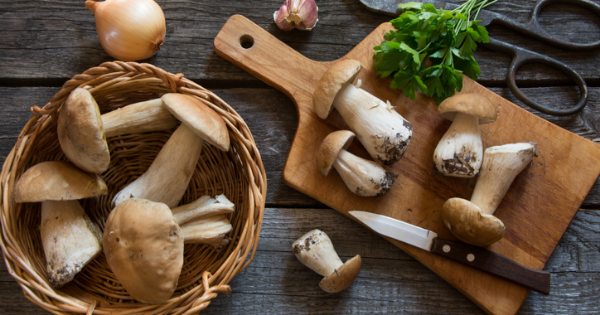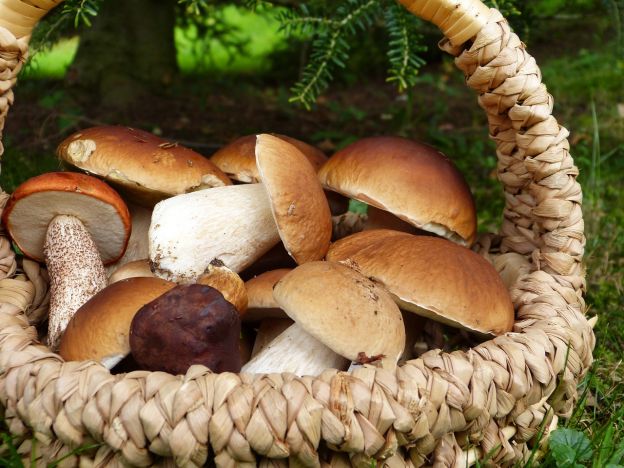It's September which means fall is soon to be upon us, and fall means it's mushroom time! But have you tried cooking with varieties other than white button, cremini, or baby portabella?
If not and you're keen for a tasty treasure hunt, check out these edible wild mushrooms and how to cook them!
© Pixabay / silviarita,
Wild Mushrooms
Besides existing in nature, wild mushrooms can often be purchased at farmer's markets or specialty grocery stores. If you happen to live near wooded areas however, you may be able to spot some you can eat while out exploring. If you decide to forage for mushrooms, you should do so with caution, preferably with someone who is already familiar with the different varieties that are safe to to consume and those that are not. When in doubt, don't take your chances.
Here are a few tips to remember if you do decide to forage wild mushrooms on your own:
- Familiarize yourself with the mushrooms you want to forage beforehand. Research where and when they're available, and either buy a book or print out key information regarding the specific varieties in your region: how they should look and smell, how comestible or toxic they are.
- Mushrooms can be plucked, twisted out of the ground or cut off just above the ground. Use a good pocket knife if you're cutting. If you pluck them out, make sure you smooth over the soil again and close any holes, otherwise this can damage the growth of neighboring plants.
- Bring a paint brush along so you can clean the mushrooms from to top to stem as best as possible before bringing them home.
- Mushrooms should be transported in a basket and never in an airtight container.
- When trying wild mushrooms you've foraged for the first time, always do a tolerance test first: properly wash and fully cook one mushroom, try it and wait one to two days, to be sure you don't get ill or have an adverse reaction. Definitely don't test them out alone, in case you do fall ill and need assistance.
- Some mushrooms that are extremely rare or in demand might require a special permit, so make sure you do your research.
- Always clean and cook wild mushrooms thoroughly. They should never be eaten raw because they're essentially indigestible and can be deadly due to their toxicity levels or potentially harmful bacteria and pathogens.
Now that you know the risks, you can either give foraging a try or get some from local suppliers. Here's a quick guide to the mushrooms you've been missing, plus delicious ways to cook them.
 Cheap & Easy Meals that Won't Break the...
Cheap & Easy Meals that Won't Break the...
 45 Quick & Easy Dinners to Make with...
45 Quick & Easy Dinners to Make with...
 50 Smart Kitchen Habits for Faster...
50 Smart Kitchen Habits for Faster...














Comment on this article